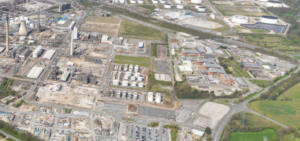New study reveals large scale demand for hydrogen in North West

It is expected that industry and power generation will be the first movers for significant take up of hydrogen with estimates revealing total demand in the region could support up to 7.5GW of hydrogen production by 2050. Demand is also expected to come from transport and heating buildings.
The North West is one of the first two decarbonised energy clusters given Government backing with HyNet North West selected as a Track-1 Carbon Capture, Usage and Storage (CCUS) cluster.
With a number of hydrogen projects already underway including green hydrogen, hydrogen buses, trials of hydrogen in industry and salt cavern hydrogen storage, the region is set to be the first region to develop a hydrogen market in the UK.
Helen Boyle, head of regional development (North West and Midlands) at Cadent on behalf of the NWHA, said: “For the first time we have a complete understanding of the expected hydrogen demand in the region. The North West is set to become the UK’s home of hydrogen with industrial businesses already signed up to switch to this low carbon fuel and decarbonise their operations. Hydrogen can also revolutionise how we balance the energy system, travel around the country and heat our homes and businesses. This study comes as we celebrate the UK’s second national Hydrogen Week – which brings together stakeholders from across the UK to celebrate and promote the role of hydrogen in reaching net-zero.”
Earlier this year, NWHA member EET Hydrogen secured planning permission to build the UK’s first large scale, low carbon hydrogen production plant in the UK located at the Stanlow Manufacturing Complex in Ellesmere Port, Cheshire.
With construction expected to begin later this year, the hub could produce 1GW of hydrogen by 2030.













